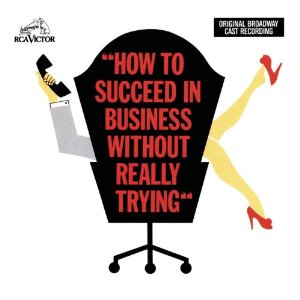So maybe Shepherd Mead, the author of “How to Succeed in Business Without Really Trying”, had it right after all. Perhaps it’s not always the smartest, most hard-working guys and gals that get ahead, but it’s the ones who learn how to “play the game”.
That would certainly be the key takeaway from a recent Harvard Business Review article, “Great Leaders Embrace Office Politics“, by Michael Chang Wenderoth.
Wenderoth tells the story of a rising young executive who found herself strategically ousted in an internal power play. She had all the obvious skills to rise to the corner office: consistent top 10% performer, hardworking, intelligent, personable, driven, multilingual, an MBA from a top-tier school.
Wenderoth believes that this young woman was a victim of what he calls the “Kumbaya” school of leadership, which says that being open, trusting, authentic, and positive — and working really hard — is the key to getting ahead. Wenderoth believes the young woman should have spent much more time managing up; she should have better managed decision makers, her boss, her image, and her own career.
Rather than being chained to her desk delivering great work, she should have been networking with the most influential executives, ensuring her contributions were noticed by those above her, and confirming that she was being perceived as executive-suite material.
In other words, playing office politics.
Wenderoth notes that many people shy away from such behavior, since they feel that using emotion, spin, or relationships to influence others feels unfair, even if there is convincing research that shows such methods can be effective (as Matthew Broderick clearly proved).
Instead, most people believe in meritocracy; that working hard and doing an effective job are the keys to career success. However, there is strong evidence that our work ratings, bonuses, and promotions are weakly correlated to actual performance — in fact, performance may even matter less to our success than our political skills and how we are perceived by those who make the decisions.
Wenderoth ends his article by sharing a list of many popular books out today that offer the same message as him, that we need to pay more attention to interpersonal relationships and politics. I’ve read a couple of those books, and while I don’t recall the details, I do remember enjoying them quite a bit.
But I guess while I can see the value in Wenderoth’s argument, I don;t see myself changing my behavior accordingly. I’ve never been a fan of office politics, and have purposely gone out of my way to avoid it. (That may explain why I don’t have many “friends” in higher-up positions). I’ve seen others engage in such behavior, and many times it seems as if such behavior is rewarded.
But it’s just not me; I still believe in meritocracy, and if I am successful in achieving the goals I set for myself, I don’t really need the external validation that seems to be one of the reasons people like to play office politics.
I’m not saying that such external validation wouldn’t be nice on occasion (or as Seth Godin calls it, applause), but it’s not why I do what I do.
I could never be J. Pierrepont Finch…

